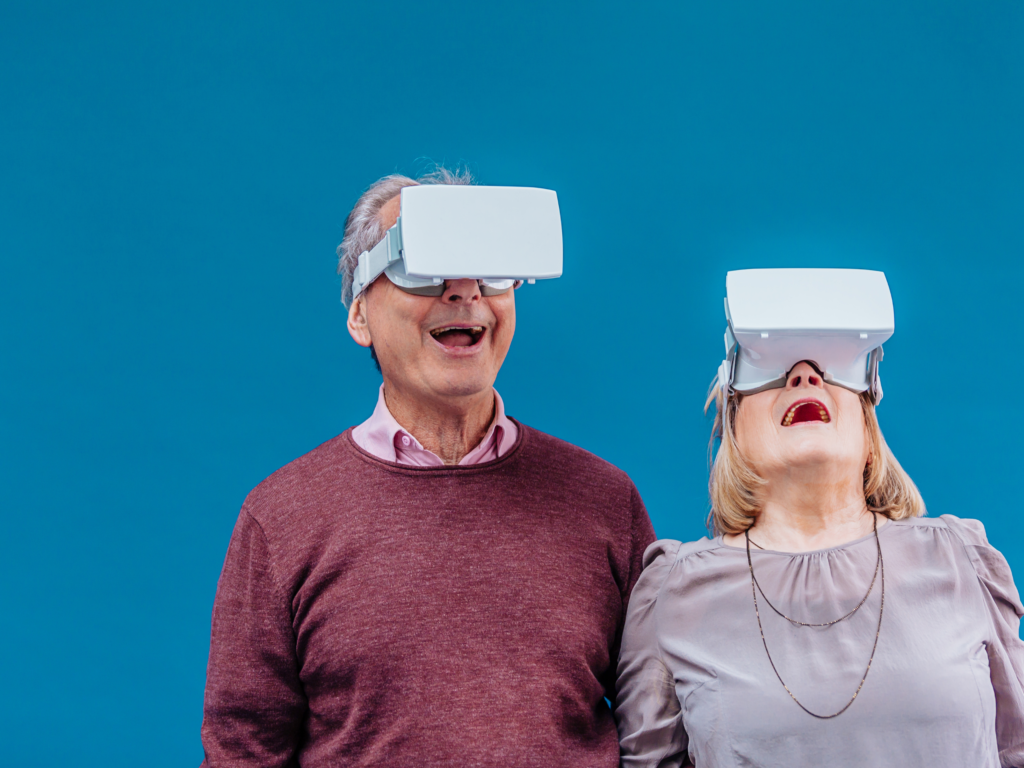Virtual Reality and Seniors: New Research
- June 10, 2024

Virtual reality and seniors aren’t two terms typically mentioned at the same time. As the population ages, the use of VR technology in senior care is gaining attention for its potential to enhance mental, emotional, and physical well-being.
A new study from the University of Canberra in Australia performed a review of research papers looking at virtual reality and seniors well-being. They found that a curated and supervised experience that promoted social interaction among participants had a significant impact on well-being.
Virtual reality appears to have many positive outcomes for seniors. One of the most significant benefits of VR for seniors is its ability to provide cognitive stimulation. Engaging in VR activities can help keep the mind active, which is crucial in combating cognitive decline and conditions like dementia. Research indicates that VR can improve memory, attention, and problem-solving skills in older adults .
Emotionally, VR can provide a sense of escapism and adventure without the need for physical travel. Seniors can visit exotic locations, explore underwater worlds, or even revisit places from their past, all from the comfort of their home or care facility. This can significantly enhance their mood and reduce feelings of isolation and depression, which are common among the elderly .
Physically, VR can also play a role in promoting exercise and mobility. Virtual reality exercise programs, such as virtual walking tours or dancing games, can encourage seniors to stay active in a fun and engaging way. This can help improve their overall fitness, balance, and coordination, reducing the risk of falls and other injuries .
Moreover, VR can facilitate social interactions by connecting seniors with family, friends, and even other seniors through virtual environments. This social engagement is vital for maintaining mental health and emotional well-being, especially for those who may have limited opportunities for face-to-face interactions .
In conclusion, VR offers a multifaceted approach to enhancing the lives of seniors. By providing cognitive stimulation, emotional enrichment, physical activity, and social connectivity, VR can play a crucial role in promoting a healthier and happier aging process.
Our Life Bridges Dementia Day Program as well as our Connections Senior Activities routinely utilize virtual reality for out senior participants.
References:
- AARP. (2023). “How Virtual Reality is Changing Senior Care.”
- Frontiers in Psychology. (2022). “The Cognitive Benefits of Virtual Reality for Older Adults.”
- Journal of Geriatric Psychiatry. (2021). “The Emotional Impact of Virtual Reality on the Elderly.”
- The Gerontologist. (2022). “Promoting Physical Activity in Seniors Through Virtual Reality.”
- Aging & Mental Health. (2023). “Virtual Reality as a Tool for Social Engagement in Older Adults.”
